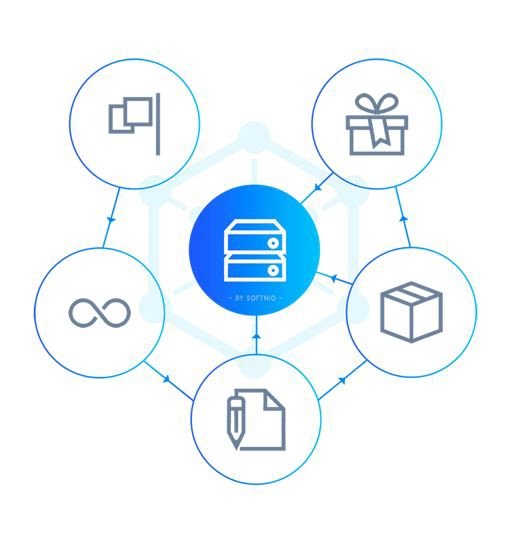Community Owned and Operated Marketplace
A centralized marketplace isn’t all bad. In summary, it’s one person in control of big decisions with consideration for only their business. Centralized market platforms have been around for many years. But with decentralized blockchain the marketplace can become better. Decentralized platforms enable all members of the community to have a voice and take charge.
Centralized platforms create misaligned incentives, for example when the company grows successful but the users are dissatisfied gaining no reward. When a market demands increase for goods and services, network participants should benefit. Instead, companies want to capitalize on value added by the customers.
ApolloX, a decentralized platform puts all users first.
Organizational structure is the key difference between decentralized e-commerce and traditional e-commerce companies. Traditional e-commerce companies have clear boundaries between sellers and buyers. The goal is to maximize their own interests as a service provider company, with no reward for the buyer. In contrast, decentralized e-commerce is made up of a large number of regular users, including sellers and buyers, motivated by the blockchain protocol. By designing a reasonable incentive mechanism, the individual economic interests of each member of the community are linked to the long-term benefits of the platform as a whole. Whether it is to obtain economically valuable tokens or to increase the overall value of the tokens through their own actions. Everyone is creating and increasing value for the community while seeking benefits for themselves.

Community Increases Value of ApolloX: Rewarded with Tokens.
To increase the value of ApolloX users must maintain the value of the community, whether it be through small or big actions. Since the community helps increase value, they are rewarded with tokens. It’s a win-win situation missing in large marketplaces.
For example, with ApolloX Tokens (AXT), buyers can obtain free AXT tokens by setting up an account, filling in an address, associating historical shopping information, etc. The information provided will greatly help the e-commerce platform understand the needs of users. This type of data is usually, strictly controlled by traditional e-commerce companies. ApolloX uses tokens to allow buyers to earn profit from their own data.
As for sellers, those who create a best selling item for the platform, earn token rewards. The number of best selling items is crucial to the rapid growth of early e-commerce platforms. When a new product is determined to be a best-seller, the platform will reward the seller with a certain amount of AXT tokens to encourage more sellers to continue to bring their own excellent products to the ApolloX platform.
For all community members, including sellers or customers, you can help the community grow with dispute resolution and good judgement. Similar to traditional affiliate marketing, members can invite new people to join ApolloX. After new people join and generate deals, each party will receive ApolloX rewards.
The more consumers shop on ApolloX, the overall value of ApolloX will increase, as well as the value of ApolloX tokens (AXT).
The community is in control when a red flag appears. For example, when someone proposes to significantly increase a transaction costs on ApolloX, members of the community will realize that such behavior will reduce the overall value of ApolloX, thereby reducing the value of ApolloX tokens (AXT) in its hands. This is where the community works together to oppose such behavior. The way this organizational structure secures the interests of the organizers and participants in the community is unique to the blockchain and is also the core strength of decentralized e-commerce marketplace.
Leave a comment: What excites you about decentralized marketplaces?
Stay tuned for our next blog about ApolloX Tokens (AXT) and how the reward system works.
Follow ApolloX:
Twitter @apolloX_network
Telegram: ApolloX Group